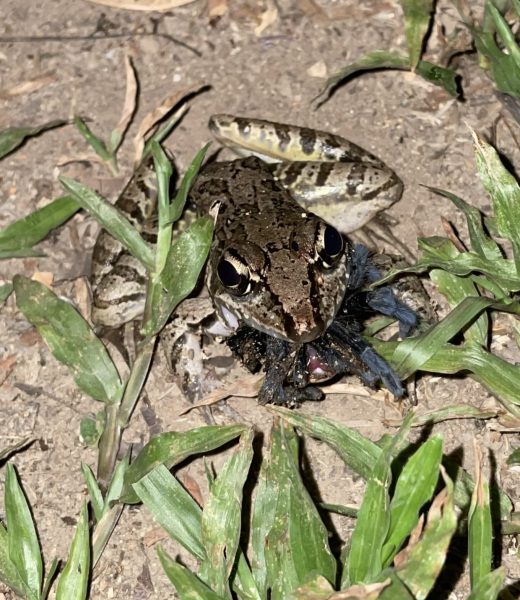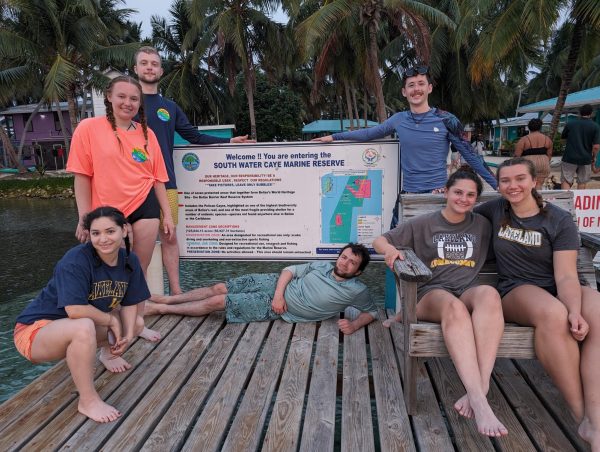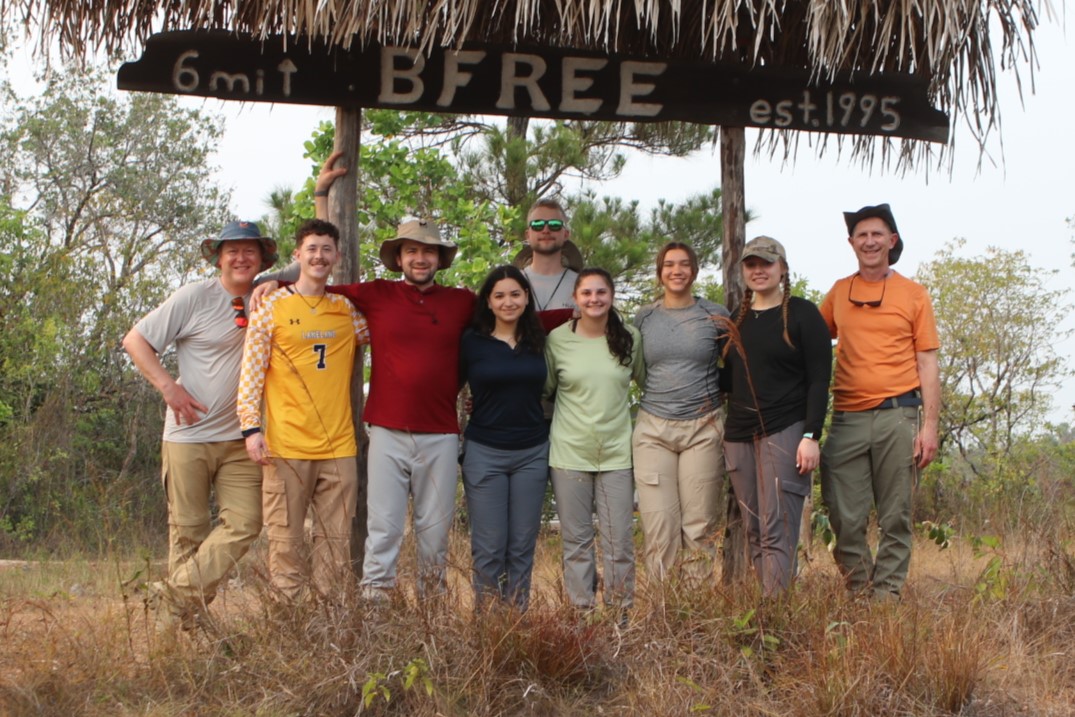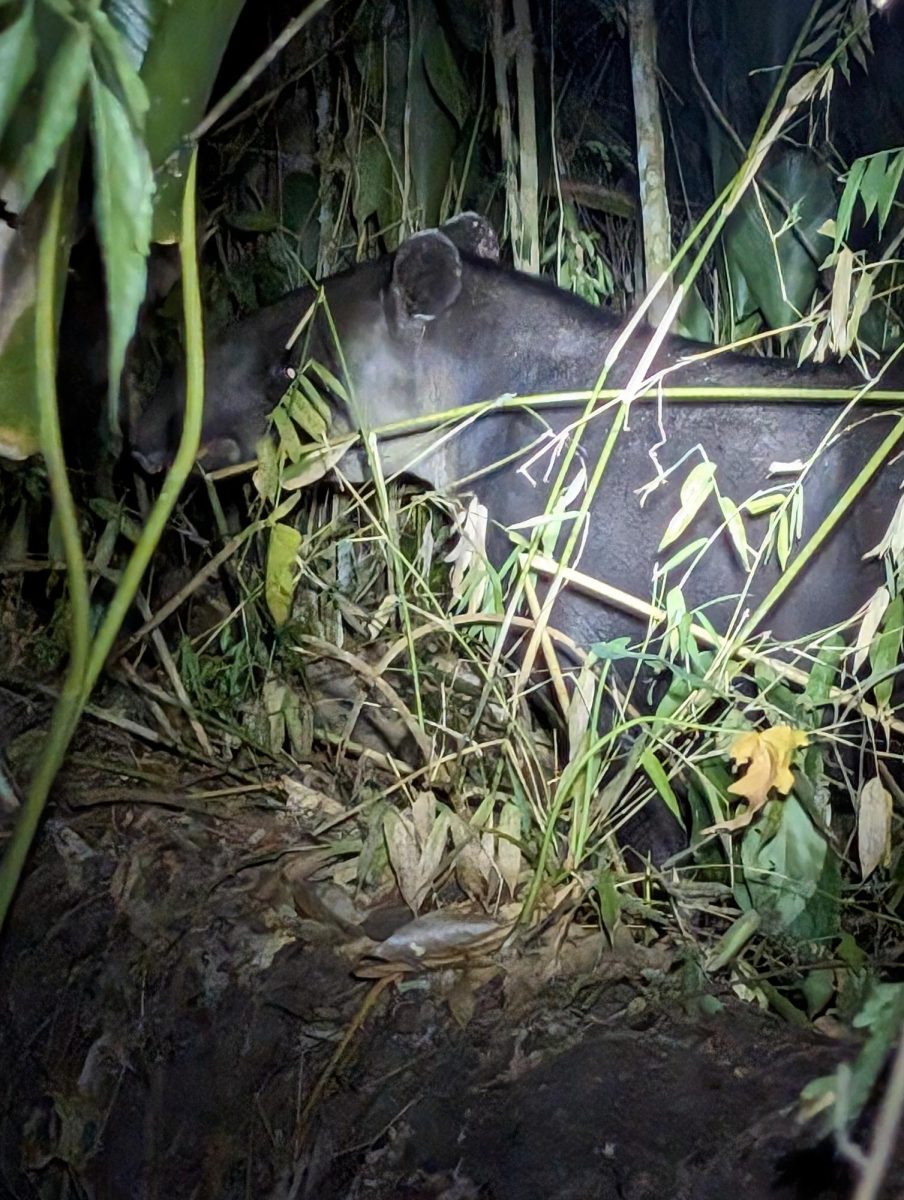With the next round of class registration looming, Lakeland will offer Tropical Ecology again this spring. This biology course, offered every other year, highlights a once-in-a-lifetime international trip to Belize through the Belize Foundation for Research & Environmental Education group. From jungle living to seeing rare species, this trip has it all.
Belize is a small country on the northeast coast of Central America. With a population just north of 400,000, the country consists of about three-fifths of its land being forested. Belize also features the Belize Barrier Reef, the second largest coral reef in the world. The 8,800 square miles of Belize is home to over 5,000 species of plants and hundreds of species of animals including jungle cats, monkeys, and parrots.

The course is based around a 15-day trip with 9 days and 8 nights at the Belize Foundation for Research & Environmental Education area. BFREE maintains a private, protected 1,153-acre area which includes the largest tract of uninterrupted rainforest north of the Amazon spanning 2 million acres. The rainforest climate is an ideal spot for biodiversity, particularly for several endangered species.
BFREE also features the world’s first jaguar preserve where the Tropical Ecology students conduct their course research. 2022 Tropical Ecology student, Tana Zdroik, discussed her experience in Belize and conducting her research, “Assessing the Relationship Between Wolf Spider and Tarantula Abundance in the Belizean Rainforest,” which she collaborated with other students on. Zdroik’s research group focused on the abundance of each species of spider and the density of each around the other, most of this research being conducted at night.
Zdroik said, “My favorite part of the trip to Belize was snorkeling on the coral reef at night to see the nocturnal eels and octopus.” Zdroik received one of the available scholarships through Lakeland. Zdroik mentioned that this trip was an investment in her future. To prepare for the trip, Zdroik worked out a lot to prepare herself for the intense amount of hiking the trip required.

Professor of Biology, Dr. Paul Pickhardt, created the Tropical Ecology course with Dr. Greg Smith in 2008. The course started as part of Pickhardt’s interview at Lakeland, with a year and a half of planning using his experience of teaching a similar course during his graduate program and is based around student research.
Belize is part of the most diverse climate of the planet; the course was seen as a must. Pickhardt said, “being in a habitat to see something new and different” is one of the highlights that students can look forward to. The BFREE site is incredibly diverse in its forest and river areas, you are apt to see different things. Pickhardt was happy to share that he has seen something different every time he goes on this trip, and students see wild and intriguing things in this part of the world.
Research projects on this trip are done throughout the day and night depending on the topic. Students use their time to get excited about their research and find a system in the forest. From land snails to criollo cacao, students can conduct research projects in every area of Belize from the forests to the rivers. Outside of research, students can expect to see Mayan villages, the first jaguar reserve in the world, multiple Cayes, the Belize Zoo, Mayan ruins and the Tropical Ecology Center.
Lakeland’s partnership with BFREE is key to the success of this course. “Their name gives great mesh for Lakeland’s mission,” Pickhardt explained. “They serve and employ native Belizeans and locals as workers, tour guides, educational coordinators and managers.” BFREE also strives to protect diversity as Lakeland strives for diverse education.
With Dr. Andrew Karls, Associate Professor of Biology, joining the course for the first time, Pickhardt reflected on his first trip, “We hiked into BFREE on my 40th birthday… that first group was very adventurous.” BFREE was much younger then with primitive facilities, but those first students were flexible and accepting.
During this trip, students will have the opportunity to interact with the separate Mayan groups that live in Belize, Creole, African populations, Hispanic and British history populations of Belize. Since the first trip, Mayan ruins, relics and jade have been discovered. Pickhardt added that “the BFREE chef is incredible!” Making the students a healthy and fresh Belize menu breakfast, lunch and dinner.
For finances, there are scholarships that are funded by a Lakeland University alumni to support international travel experiences. Individual fundraising is also encouraged, but, compared to a solo trip for the same experience, Tropical Ecology is much cheaper.
Students interested in participating in BIO 321 Tropical Ecology must have any BIO or CHM course with a lab or may seek instructor approval.



